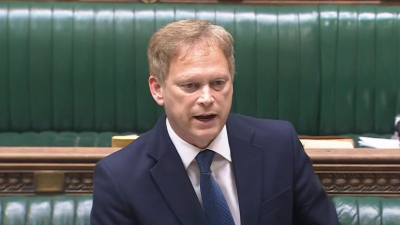As the week unfolded, expectations ran high for the culmination of efforts. After successive defeats in the House of Commons thwarted the Lords' amendments to the prime minister's contentious illegal immigration bill, anticipation was rife that peers would relent and allow the Rwanda bill to proceed unimpeded. However, the script took an unexpected turn as they moved to amend the legislation once more.
The latest delay in the Rwanda bill has stirred evident frustration within the government ranks, with a senior figure lamenting, "We wanted to get it done today, but it shows Labour for their true colours." With the Rwanda bill slated to return to the Commons next week, hopes now hinge on its potential passage come Monday, all against the backdrop of the prime minister's pledge to initiate flights by the end of spring.
Despite the PM's declaration of 'enough is enough', the House of Lords persists in pushing back on the Rwanda bill, raising questions about the administration's ability to meet its looming deadline. Yet, amidst the exasperation, some MPs find themselves equally vexed with Number 10's handling of the situation. Many wonder why the government didn't opt for late-night sittings to compel Lords to expedite the process.
Tory MP Rehman Chishti echoes the sentiment of numerous colleagues, expressing bewilderment at the absence of such a strategy. "We've got a plan, but we need to get it through," he asserts, emphasizing the urgency of action. Another minister contends that these delays are tactical, driven by a desire to buy time and avoid confronting the shortcomings of the policy.
With the clock ticking and the public's patience wearing thin, the pressure mounts on all fronts. The government must navigate through the political quagmire, facing not only opposition from the opposition but also discontent within its own ranks. As the blame game ensues, the imperative remains clear: to push through the legislation and deliver on promises made.
Amidst the finger-pointing and frustration, the blame game escalates between Labour and the government, each accusing the other of stalling progress on the bill. Labour accuses the government of inflexibility, while the government retaliates, asserting that Labour's resistance stems from fear of the bill's efficacy.
Speculation abounds that a crucial amendment, proposed to spare Afghan allies of UK forces from deportation to Rwanda, could have tipped the scales in favor of the bill's passage had the government accepted it. However, despite assurances from the Home Office, the amendment was unexpectedly blocked, adding fuel to the already fiery debate.
Despite the theatrics and exasperation, it remains probable that the prime minister will eventually secure victory. The House of Lords cannot indefinitely defy the will of the Commons. Yet, the real challenge lies beyond legislative triumphs — it lies in fulfilling promises made to disillusioned voters, increasingly skeptical of government efficacy, particularly in addressing the ongoing migrant crisis.
In Cleethorpes, a pivotal constituency, residents express doubt over the government's ability to deliver on its pledges. The sentiment echoes a broader skepticism towards political promises. For the prime minister, passing the legislation is merely the beginning. The true test lies in actualizing policy outcomes and addressing the pressing issue of migrant crossings.
As the saga unfolds, the prime minister faces not only parliamentary hurdles but also internal dissent. Some backbenchers doubt the feasibility of the proposed policy, raising questions about its effectiveness. Achieving a parliamentary victory is but a precursor to more significant challenges ahead, including potential clashes with the House of Lords and even the European courts.
Indeed, the road ahead is fraught with showdowns and uncertainties. The ultimate test of leadership lies not just in winning battles in Parliament but in delivering tangible results that resonate with the electorate. Anything less than meaningful action risks further eroding public trust and exacerbating the prevailing sense of disillusionment.
In conclusion, as the political saga surrounding the Rwanda bill unfolds, it becomes evident that passing legislation is only the first step in addressing complex societal challenges. Beyond the rhetoric and parliamentary debates, the true measure of success lies in translating promises into meaningful action. The prime minister's ability to navigate through the impending hurdles, both within Parliament and beyond, will determine not only the fate of the bill but also the government's credibility in the eyes of the public. With each passing day, the urgency to deliver concrete solutions to pressing issues such as immigration intensifies. As the spotlight remains firmly fixed on Westminster, the onus rests on policymakers to rise above partisan divides and demonstrate genuine leadership in tackling the issues that matter most to the people they serve. Ultimately, the success of the Rwanda bill will be measured not by its passage alone but by its tangible impact on the lives of those affected and the government's commitment to fulfilling its promises.







